Spirituality at St. Anne's and Our Approach
As an Episcopal school, St. Anne’s recognizes the innate spirituality of every person and offers an educational experience steeped in independent thinking, community traditions, religious studies, and shared values that help us lead lives of connection, purpose, generosity, and grace. At St. Anne’s, we do not prescribe what one ought to believe but rather come together to pay attention, to pray, to share joys and sorrows. We believe that it is through asking questions, listening, and engaging with a variety of worldviews and faith practices that we can discover something bigger than ourselves and build a loving community and a more just world.
While Christianity is central to the history and ethos of our school, we recognize that no one person or group has a monopoly on truth, goodness, and beauty. We see our diversity as a gift and meet people wherever on the journey of life and faith they are. We take pride in being an Episcopal school and work to raise self-aware, well-rounded, spiritually curious children who can articulate their faith, however defined, and be prepared to engage across differences in a pluralistic world. St. Anne’s rejects exclusive theologies, dogmas, and practices that deny people their right to belong or be loved. We consistently emphasize service to others, humility, non-judgment, and looking for one’s spiritual center while being true to who you are.
OUR EPISCOPAL IDENTITY

Rooted in the faith, service, and unconditional love exemplified by our founding Sisters, St. Anne’s
strives to be a welcoming community that respects and advocates for the dignity of all students, faculty, staff, and families. As an Episcopal school, we tend to the many life stories, spiritual journeys, and religious traditions present among us. We invite all community members to engage in the joyful and courageous process of learning - a lifelong endeavor that calls us to grow and work together for justice and peace.
FAQs
| Are you affiliated with a church and/or the diocese? |
|---|
| We are fully independent and are not accountable to or governed by any church, parish, or the Episcopal Church (diocese) in Colorado. We maintain friendly relations with members of the clergy and the places of worship our families attend. We do appreciate and preserve the religious origins of our school and proudly lean into the beauty and gifts of the Episcopal tradition. |
| Are families from different religious and non-religious backgrounds welcome at St. Anne’s? |
| Absolutely! We are a diverse group of educators and learners, parents and alumni, only a minority identifying as Episcopalian. Our community includes families who practice various religious traditions or none at all. We respect each other’s individuality and build community on shared human values. |
| What kind of a religious school is St. Anne’s? |
| We stand in the remarkable lineage of Episcopal schools, all known for their academic excellence and inclusion of the “spiritual” in the whole-child approach to education. We meet everyone where they are and support children’s innate curiosity about a higher power, but do not seek to indoctrinate, proselytize, or fulfill the role of a church. St. Anne’s will always be a school first. |
| Do you believe in God? |
|
Some of us have a profound faith in God, some don’t, some are discovering who God is: We welcome all and delight in the fact that at St. Anne’s we can talk about faith openly. We are glad that our school can be a place where everyone is invited to be exactly who they are and practice their beliefs freely within our community norms and values. We fully support respectful dialogue about the things that matter most to us and will always keep the Sister’s devotion to God at the heart of our school story. |
| Is there a school chaplain? |
 Yes. A school chaplain is an ordained or lay minister (MDiv) who takes care of our religious heritage and traditions, oversees chapels, and offers pastoral care to all members of the community. The chaplain takes an active role in the life of the school, is in charge of religious education, and contributes to service learning, diversity and equity initiatives, character education, and occasionally coaches a sport or leads a dance elective. Yes. A school chaplain is an ordained or lay minister (MDiv) who takes care of our religious heritage and traditions, oversees chapels, and offers pastoral care to all members of the community. The chaplain takes an active role in the life of the school, is in charge of religious education, and contributes to service learning, diversity and equity initiatives, character education, and occasionally coaches a sport or leads a dance elective.Originally from Russia, Chaplain Ana brings a rich tapestry of global experience and deep theological study to her role. After an early encounter with American culture as a high school exchange student in Alabama, she pursued higher education at Dickinson College (BA, International Business and Management) and later earned a Master of Divinity degree from Union Theological Seminary in New York City. Her journey to chaplaincy included time with the Episcopal Service Corps and internships in both parish and school ministry, all of which nurtured her passion for spiritual education and pastoral care. She delights in coaching volleyball as well as supporting service learning, Character Power, community, belonging and love initiatives at St. Anne’s. The school chaplain is available to all community members - staff and faculty, parents and caregivers, alumni recent and far - for spiritual care and dialogue. Chaplain Ana is currently pursuing ordination to priesthood at St. John’s Cathedral. Contact at: akhlopina@st-annes.org |
| What is Chapel? |
 Chapels are non-sacramental and intentionally inclusive gatherings - grade level, middle school, and all-school - held about once a month each. Because of our heritage, most of our lexicon is Christian (ex. “God,” “grace,” “amen,” etc.) and chapels loosely follow the liturgy outlined in the Book of Common Prayer, a hallmark of the Episcopal Church. A sequence of hymns, music, readings, reflections, and prayer can be expected at each all-school chapel, held in the dining hall and performance arts space. We also have the Sisters’ Chapel, which is an original prayer space of the Sisters of the Order of St. Anne’s. Chapels are non-sacramental and intentionally inclusive gatherings - grade level, middle school, and all-school - held about once a month each. Because of our heritage, most of our lexicon is Christian (ex. “God,” “grace,” “amen,” etc.) and chapels loosely follow the liturgy outlined in the Book of Common Prayer, a hallmark of the Episcopal Church. A sequence of hymns, music, readings, reflections, and prayer can be expected at each all-school chapel, held in the dining hall and performance arts space. We also have the Sisters’ Chapel, which is an original prayer space of the Sisters of the Order of St. Anne’s. |
| Will our children hear about God and the Bible? |
| Yes. Our chaplain teaches a class in religious studies throughout the school year to all students in Preschool through 8th Grade about once a rotation (every seven school days) in Lower School and roughly once a month in Middle School. Most of class time in Lower School (PS-5) is dedicated to stories from the Hebrew and Christian Scriptures, with a focus on central Biblical characters. We take a closer look at Jesus of Nazareth around Christmas and Easter while maintaining an academic approach. We also study major holidays of other faith traditions as a way to familiarize students with their fundamental terms, concepts, and practices. The Middle School curriculum is dedicated to world religions, ethics, religious exemplars, and fundamentals of Christian theology. We deeply respect but do not emphasize the salvific qualities of Christ in the classroom, leaving it to individual families, church communities, and personal practice. |
| What is the role of religion in the curriculum? |
| Religious studies is a stand-alone class that supplements our multifaceted, holistic curriculum. Religion does not influence any other subject taught at St. Anne’s. You can look over our curriculum for lower school and middle school. |
| What is NAES and the school’s relationship with it? |
| NAES stands for the National Association of Episcopal Schools and St. Anne’s is a member. Episcopal schools are known not only for their academic excellence, but also for an invitation to "all who attend and work in them—Episcopalians and non-Episcopalians, Christians and non-Christians, people of no faith tradition—both to seek clarity about their own beliefs and religions and to honor those traditions more fully and faithfully in their own lives. Above all, Episcopal schools exist not merely to educate, but to demonstrate and proclaim the unique worth and beauty of all human beings as creations of a loving, empowering God." Episcopal schools "are created to be models of God’s love and grace. They are created to serve God in Christ in all persons, regardless of origin, background, ability, or religion. They are created to 'strive for justice and peace among all people and [to] respect the dignity of every human being'.”We are also members of the National Association of Independent School (NAIS), Center for Spirituality in Education (CSEE), and Independent School Data Exchange (INDEX). |
| Does St. Anne’s Episcopal School receive accreditation from any governing organization? |
| Yes, St. Anne’s is accredited by the Association of Colorado Independent Schools (ACIS). |
|
HERITAGE & TRADITIONS |
||||||||||||||||||
|---|---|---|---|---|---|---|---|---|---|---|---|---|---|---|---|---|---|---|
|
We gather monthly for a thirty-minute service to cultivate rhythms of stillness and action, in an otherwise busy day. Through music, texts, reflections from community members, and prayer, we tend to the questions bigger than those found in textbooks, notice what is happening in and around us, and practice being a community. We recite or listen to the Lord’s Prayer at weekly assemblies, bless the animals in the fall (St. Francis Day) and gardens in the spring, re-enact Las Posadas at Christmas, and gather for Ash Wednesday and May Day. We often turn to art and nature and respectfully borrow language from secular and non-theistic traditions to find common ground and cultivate a sense of spirituality, inner strength, and belonging: to ourselves, each other, and the world. |
||||||||||||||||||
| RELIGIOUS STUDIES | ||||||||||||||||||
|
St. Anne’s is first and foremost an educational institution steeped in academic discovery and critical thinking. We value both human reason and wisdom of the Scriptures, scientific endeavor and religious literacy. Our PS-8 religion curriculum centers around a general survey of major Biblical stories and their context, fundamental principles and practices of the five world religions, as well as indigenous spirituality and interfaith dialogue. The goal of these classes is to always think deeply and support asking questions more than arriving at definite answers. Students learn to articulate their identity and beliefs, engage in theological imagination, gain respect for other faiths, build an ethical framework, and consider religion and spirituality as a means towards improvement of self and the world. We hope that a balanced, developmentally appropriate exposure to religious studies will support every student’s spiritual curiosity, meaning-making, and engagement with a beautifully diverse and often challenging world. We understand that religious practice is a lived reality for some of our families, and hope that a school like St. Anne’s can be a place to uphold it beyond home. |
||||||||||||||||||
| EPISCOPAL IDENTITY IN ACTION | ||||||||||||||||||
|
While organized religion can ignite divisiveness, we stand by its power to bring people together for a common cause. Inclusive and open-minded, we believe it would be unwise to discard the perennial search for meaning, the value of ritual, and a call to work for justice and peace found in religious practice. Our Episcopal identity invites us to look at life through an additional lens, which sees every person as loved by God. For this reason we respect the “big” questions that children ask and hope to instill in them a sense of unconditional self-worth, empathy, respect for others, and a sense of responsibility. We encourage learners of all ages to honor one another's dignity, listen openly, and live lives of gratitude, care, and harmony. Our dedication to nurturing the whole child — mind, body, and spirit — is supported through the Character Education program, Service Learning, counseling, and a balanced academic, athletic, art, and outdoor education curriculum. We invest in the social, emotional, and spiritual growth of our students, helping each of them to discover their unique strengths, purpose, and potential. In the classroom or on the playground, at the soup-kitchen or on a soccer field, we emphasize kindness and service, looking out for one another and being a friend. Episcopal Identity in action means holding a young person’s full flourishing as our highest priority. |
||||||||||||||||||
| EPISCOPAL ETHOS | ||||||||||||||||||
|
Ethos, like temperament, refers to a tradition's characteristic ways of thinking and behaving. For Episcopalians, this is comprehensive, ambiguous, open-minded, intuitive, aesthetic, moderate, naturalistic, historical, and political. This text is adapted from a book by John H. Westerhoff and Sharon E. Pearson, A People Called Episcopalians: A Brief Introduction to Our Way of Life.
|
Spirituality and Belonging in Conversation
The video below explores the deep roots of St. Anne’s Episcopal identity and how it continues to shape the school’s mission, culture, and commitment to belonging. Grounded in the legacy of the Sisters and Mother Irene, St. Anne’s embraces a faith tradition that values simplicity, open-mindedness, and radical hospitality. Join Miriah Royal, our Director of Community Engagement and Belonging, Chaplain Ana, and Chris Cox, our Head of School, for this final episode in the podcast series for the 2024/25 school year.


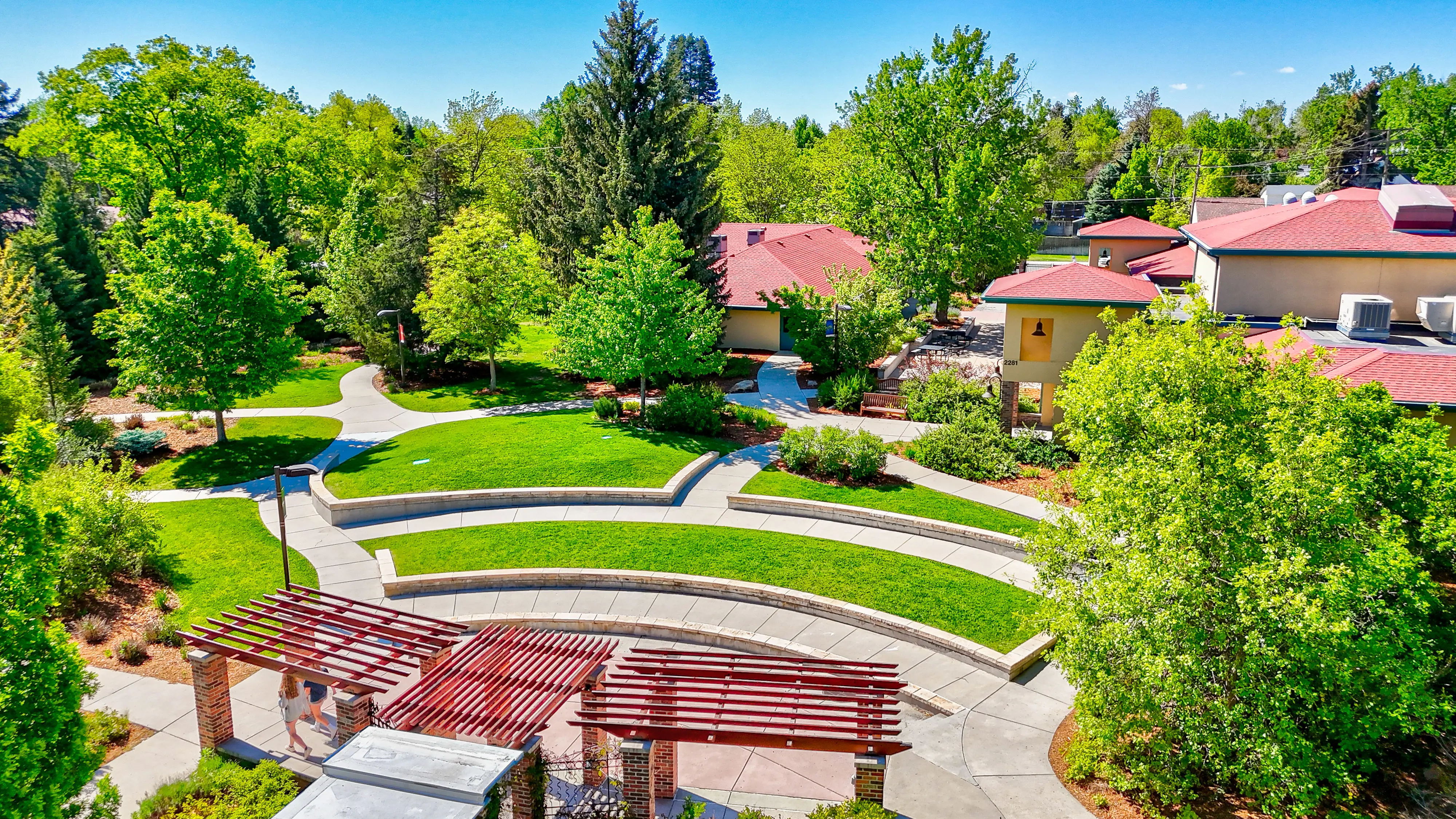
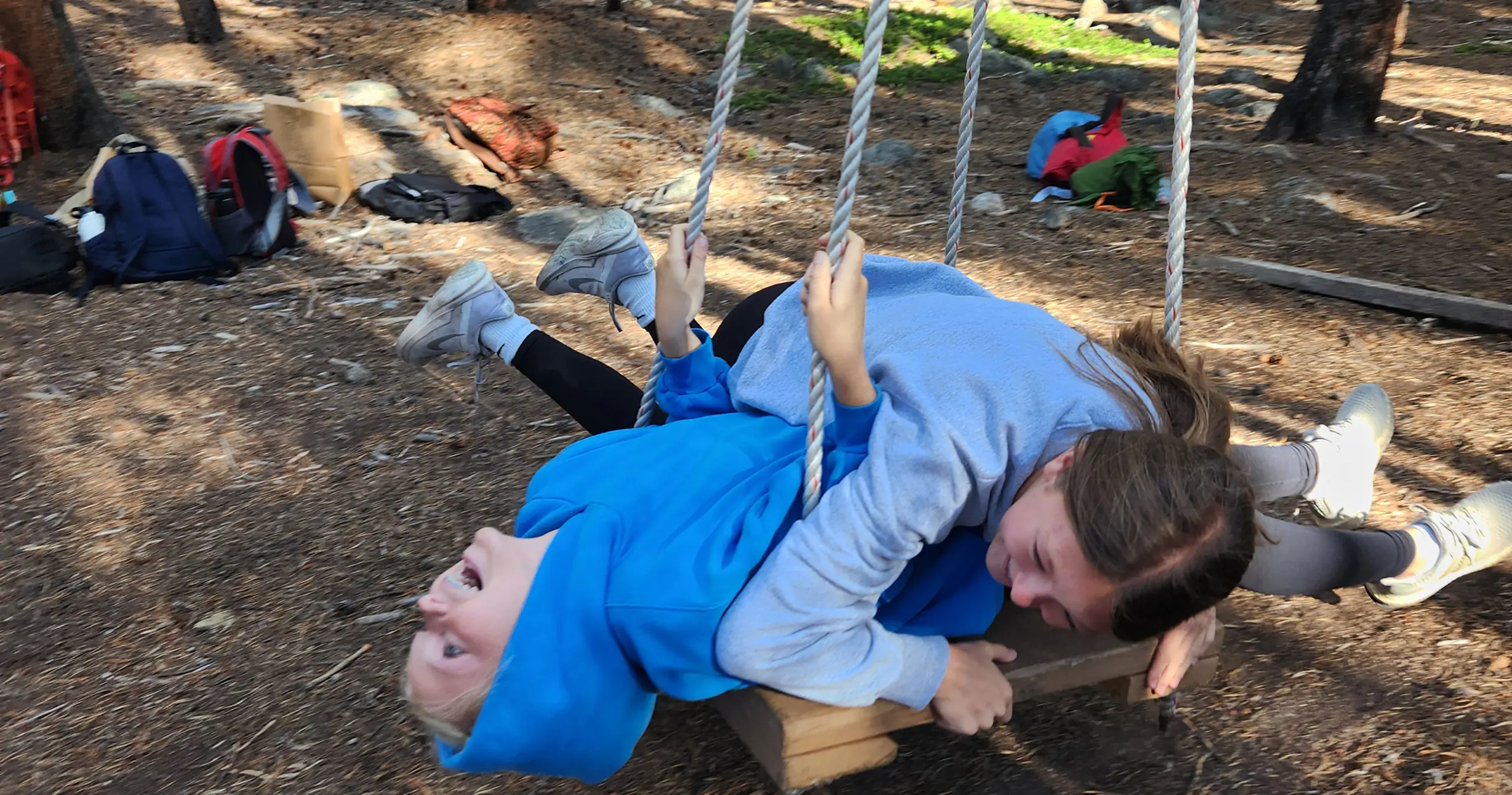


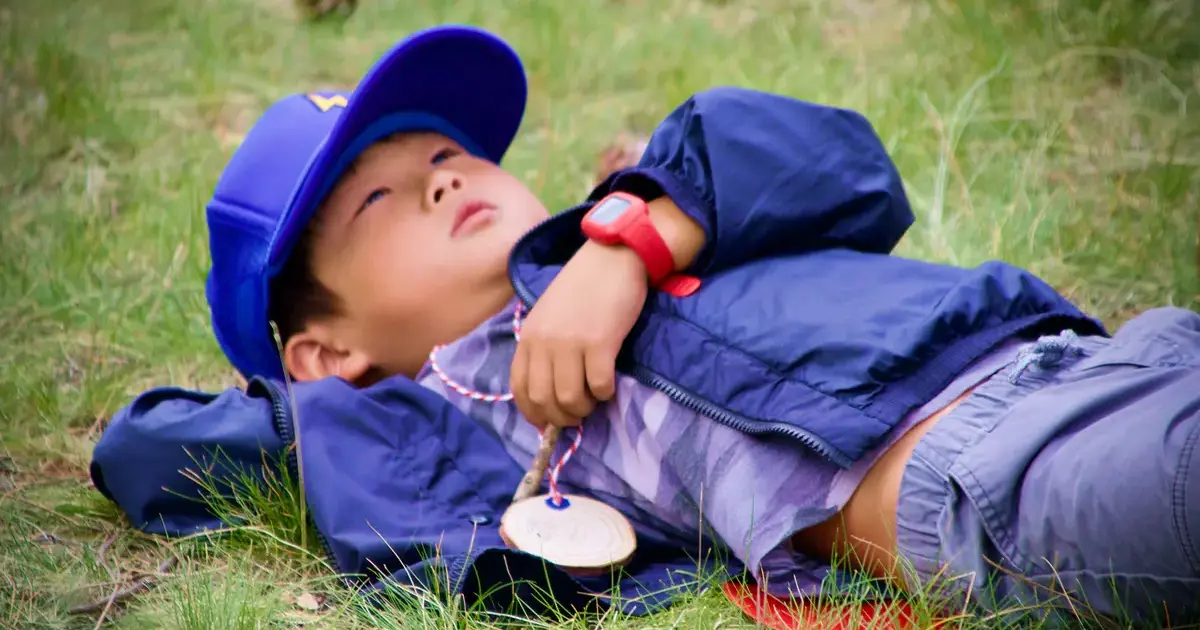

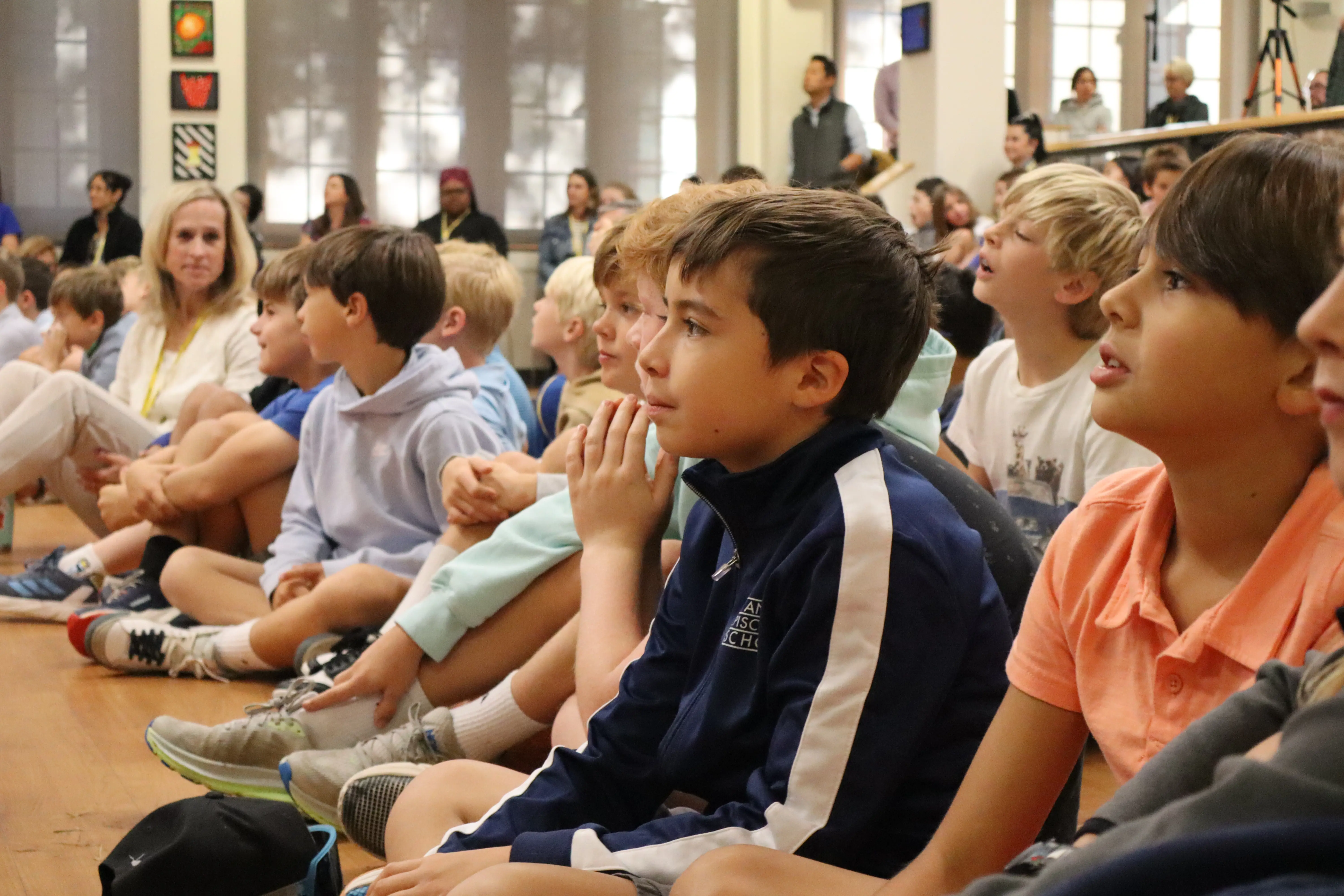
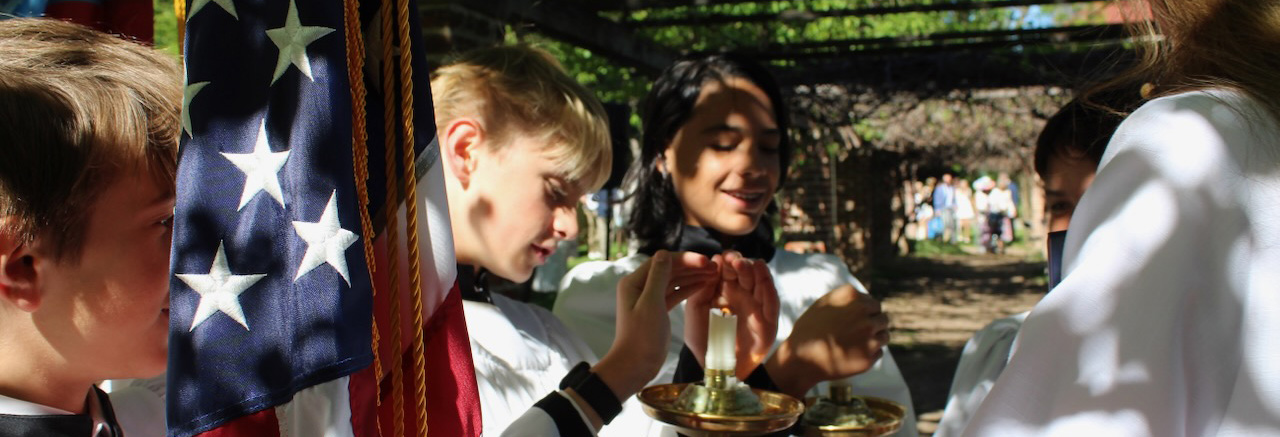
 Our founders were religious women, members of the Episcopal Order of Saint Anne (mother of Mary). They lived as a small monastic community on the margins of both society and the Church, dedicating their lives to prayer and service to others. Nourished by simplicity, beauty, devotion, and friendship, the Sisters treated everything and everyone as sacred and helped more than eighty children, stricken by polio, walk out of St. Anne’s Home (a rehab facility with round-the-clock protocol of massages, hot packs, and exercise) on their own feet. When, because of the epidemic, more regional hospitals were built, the Sisters retired from health care and started a school. It is this heritage that inspires and sustains many of our traditions.
Our founders were religious women, members of the Episcopal Order of Saint Anne (mother of Mary). They lived as a small monastic community on the margins of both society and the Church, dedicating their lives to prayer and service to others. Nourished by simplicity, beauty, devotion, and friendship, the Sisters treated everything and everyone as sacred and helped more than eighty children, stricken by polio, walk out of St. Anne’s Home (a rehab facility with round-the-clock protocol of massages, hot packs, and exercise) on their own feet. When, because of the epidemic, more regional hospitals were built, the Sisters retired from health care and started a school. It is this heritage that inspires and sustains many of our traditions.